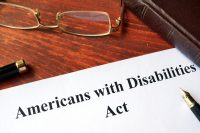EEOC Offers Clarifications, Cautions in New COVID-19 Vaccine Guidance
Updated technical assistance from the Equal Employment Opportunity Commission (EEOC) clarifies how employers can require or encourage employees to take a COVID-19 vaccine, but attorneys advising employers point out how the document also contains cautions. The EEOC updated its technical assistance on May 28 to address questions about how federal equal employment opportunity (EEO) laws may be […]













